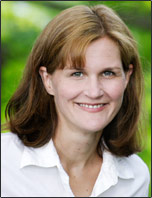Regression models, such as linear, logistic, time to event, and mixed models, measure the strength of the association between the dependent variable and the independent variables.
(more…)
Membership Webinars
Member Training: A Guide to Models for Causal Inference
Member Training: Principal Component Analysis
When you’re working with many correlated variables, they get too unwieldy to use individually.
(more…)
Member Training: Analysis of Crossover Data
Cross-over trials provide a very powerful approach for comparing two treatment conditions. Research subjects get both treatment conditions, which we will label arbitrarily as A and B.
(more…)
Member Training: Plot Estimated Marginal Means in R
Estimated marginal means (EMMs)—sometimes called least-squares means—are a powerful way to interpret and visualize results from linear and mixed-effects models. Yet many researchers struggle to extract, understand, and plot them.
In this 60-minute hands-on tutorial, participants will learn how to compute, interpret, and visualize EMMs using only base R functions together with the emmeans, car, and lme4 packages. We will start with simple linear models and progress to mixed models with random effects, highlighting how to obtain EMMs, confidence intervals, pairwise contrasts, and publication-ready base R plots. The session emphasizes conceptual understanding and practical code you can adapt immediately to your own analyses.
Note: This training is an exclusive benefit to members of the Statistically Speaking Membership Program and part of the Stat’s Amore Trainings Series. Each Stat’s Amore Training is approximately 90 minutes long.
About the Instructor
 Manolo Romero Escobar is a seasoned statistical consultant and psychometrician with a passion for helping researchers.
Manolo Romero Escobar is a seasoned statistical consultant and psychometrician with a passion for helping researchers.
Throughout his career, Manolo has worked extensively as a research and statistical consultant. He has served a diverse range of clients including health researchers, educational institutions, and government agencies. With a focus on linear mixed effects modeling, latent variable modeling, and scale development, Manolo brings a wealth of knowledge and experience to every project he undertakes.
Manolo is also proficient in statistical programming languages such as R, SPSS, and Mplus, and has experience with Python and SQL. He is passionate about leveraging technology as an educational and training tool, and he continuously enhances his skills to stay at the forefront of his field.
He holds a B.A. and Licentiate degree in Psychology from Universidad del Valle de Guatemala and a M.A. in Psychology (Area: Developmental and Cognitive Processes) from York University.
Just head over and sign up for Statistically Speaking. You'll get access to this training webinar, 130+ other stats trainings, a pathway to work through the trainings that you need — plus the expert guidance you need to build statistical skill with live Q&A sessions and an ask-a-mentor forum.
Member Training: Outliers and Influential Points
Outliers. There are as many opinions on what to do about them as there are causes for them.
But there is a lot of bad advice out there about what to do with outliers.
In this training, we’ll take a step back and explore how to think about outliers so you can make good decisions based on your data and model. You’ll learn the different types of outliers and methods for figuring out which type you have. You’ll also learn how to determine whether, and how, they’re influential, and what to do about it.
Note: This training is an exclusive benefit to members of the Statistically Speaking Membership Program and part of the Stat’s Amore Trainings Series. Each Stat’s Amore Training is approximately 90 minutes long.
About the Instructor

Karen Grace-Martin helps statistics practitioners gain an intuitive understanding of how statistics is applied to real data in research studies.
She has guided and trained researchers through their statistical analysis for over 15 years as a statistical consultant at Cornell University and through The Analysis Factor. She has master’s degrees in both applied statistics and social psychology and is an expert in SPSS and SAS.
Just head over and sign up for Statistically Speaking. You'll get access to this training webinar, 130+ other stats trainings, a pathway to work through the trainings that you need — plus the expert guidance you need to build statistical skill with live Q&A sessions and an ask-a-mentor forum.
Member Training: Marginal Models for Repeated Measures Data
Repeated measures ANOVA doesn’t cut it for many repeated measures situations, but do you always need mixed models instead?
